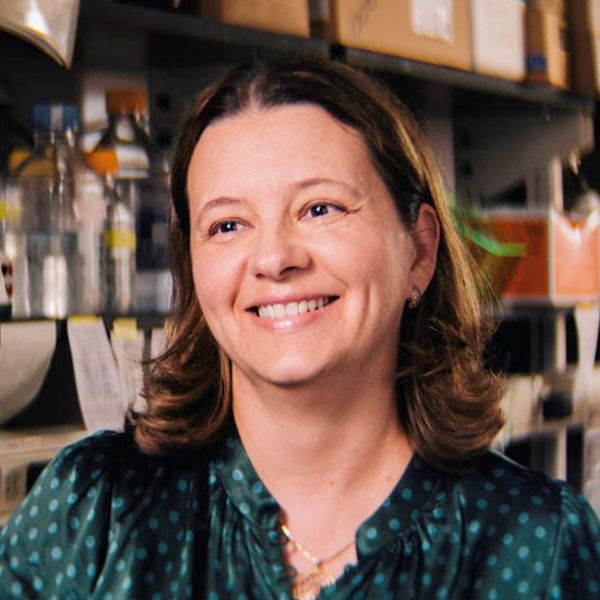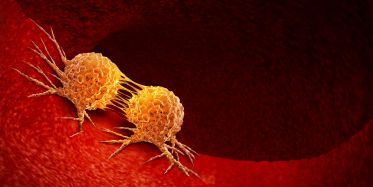Yulia Nefedova, M.D., Ph.D.
-
Associate Professor, Molecular and Cellular Oncogenesis Program, Ellen and Ronald Caplan Cancer Center
Nefedova’s research focuses on understanding molecular mechanisms by which the bone marrow microenvironment promotes tumor survival and progression.
Nefedova obtained her M.D. and Ph.D. degrees at the Pavlov State Medical University of St. Petersburg, Russia. She then pursued postdoctoral training at the H. Lee Moffitt Cancer Center and Research Institute in Tampa, FL, where she began her research in multiple myeloma. In 2013, Nefedova joined The Wistar Institute as an assistant professor in the Tumor Microenvironment and Metastasis program, and was promoted to associate professor in the Immunology, Microenvironment and Metastasis Program in 2017. She joined the Molecular and Cellular Oncogenesis Program in 2024.
The Nefedova Laboratory

The Nefedova Laboratory
The Nefedova laboratory focuses on understanding the role of the bone marrow microenvironment in regulating tumor progression and therapy resistance. The laboratory primarily studies multiple myeloma, a cancer of plasma cells that localizes in the bone marrow.
The laboratory is interested in mechanisms by which interactions between neutrophils in the bone marrow and multiple myeloma cells promote disease progression and chemoresistance. They are investigating the implication of neutrophil extracellular traps (NETs) — structures composed of chromatin and neutrophil proteins — in myeloma progression, and targeting a process of NET formation for treatment of multiple myeloma. The laboratory is also interested in the role of the S100A9 protein, highly expressed by neutrophils, in the pathogenesis of multiple myeloma.
-
Research Assistant
Melissa Haddadi
Hsuan-Yu Lin -
Lab Assistants
Hannah Lee
Nefedova Lab in the News
Selected Publications
Bone marrow myeloid cells in regulation of multiple myeloma progression.
Herlihy, S.E., Lin, C., Nefedova, Y. “Bone marrow myeloid cells in regulation of multiple myeloma progression.” Cancer Immunol Immunother. 2017 Aug;66(8):1007-1014. doi: 10.1007/s00262-017-1992-0. Epub 2017 Apr 4.
Lectin-type oxidized LDL receptor-1 distinguishes population of human polymorphonuclear myeloid-derived suppressor cells in cancer patients.
Condamine, T., Dominguez, G.A., Youn, J.I., Kossenkov, A.V., Mony, S., Alicea-Torres, K., Tcyganov, E., Hashimoto, A., Nefedova, Y., Lin, C., et al. “Lectin-type oxidized LDL receptor-1 distinguishes population of human polymorphonuclear myeloid-derived suppressor cells in cancer patients.” Sci Immunol. 2016 Aug;1(2). pii: aaf8943. doi: 10.1126/sciimmunol.aaf8943. Epub 2016 Aug 5.
Agonist-Mediated Activation of STING Induces Apoptosis in Malignant B Cells.
Tang, C.H., Zundell, J.A., Ranatunga, S., Lin, C., Nefedova, Y., Del Valle, J.R., Hu, C.C. “Agonist-Mediated Activation of STING Induces Apoptosis in Malignant B Cells.” Cancer Res. 2016 Apr 15;76(8):2137-52. doi: 10.1158/0008-5472.CAN-15-1885. Epub 2016 Mar 7.
Anti-myeloma effect of pharmacological inhibition of Notch/gamma-secretase with RO4929097 is mediated by modulation of tumor microenvironment.
Pisklakova, A., Grigson, E., Ozerova, M., Chen, F., Sullivan, D.M., Nefedova, Y., et al. “Anti-myeloma effect of pharmacological inhibition of Notch/gamma-secretase with RO4929097 is mediated by modulation of tumor microenvironment.” Cancer Biol Ther. 2016 May 3;17(5):477-85. doi: 10.1080/15384047.2016.1156261. Epub 2016 Mar 2.
Bone marrow PMN-MDSCs and neutrophils are functionally similar in protection of multiple myeloma from chemotherapy.
Ramachandran, I.R., Condamine, T., Lin, C., Herlihy, S.E., Garfall, A., Vogl, D.T., Gabrilovich, D.I., Nefedova, Y., et al. “Bone marrow PMN–MDSCs and neutrophils are functionally similar in protection of multiple myeloma from chemotherapy.” Cancer Lett. 2016 Feb 1;371(1):117-24. doi: 10.1016/j.canlet.2015.10.040. Epub 2015 Nov 27.

